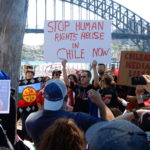Waves of Anti-Government Protests Are Sweeping the Planet
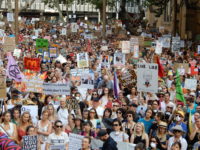
As 2019 was drawing to a close, many turned to look to the factors that shaped the social landscape over the last 12 months. And two themes kept recurring: grassroots protest movements and concerns over changing climate.
While just two weeks into the new decade, it seems safe to say that these two key areas are set to play a major role moving into the 2020s, as demonstrations and general strikes are continuing to make their mark this year.
Widespread protests are still going off in Hong Kong. The social mobilisations in Chile look set to continue. And the still escalating unrest in France has been going on for well over a year now.
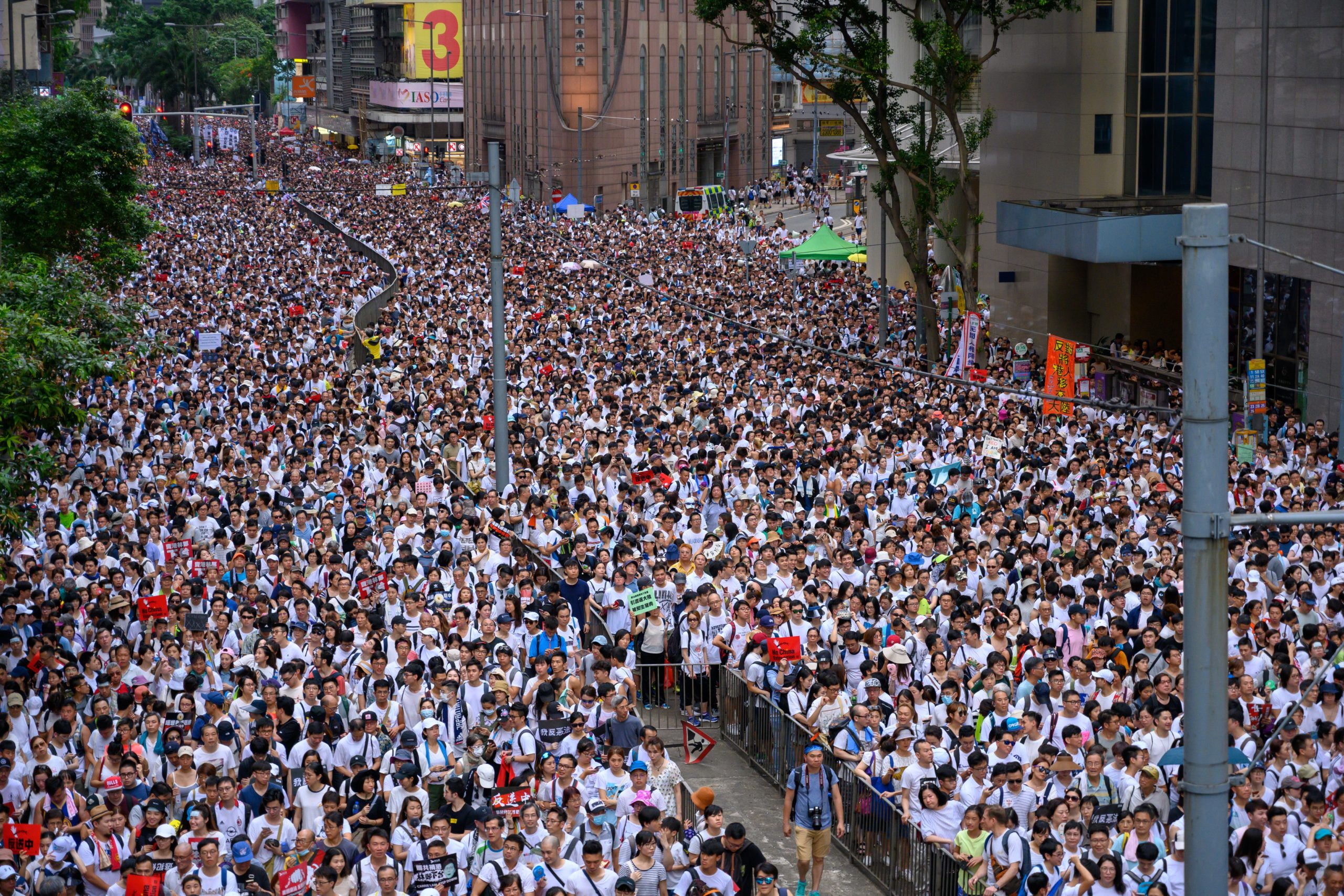
On top of those movements, we’ve seen waves of strikes sweep through the globe’s second most populated country, India. And the Middle East is witnessing something of a second Arab Spring with demonstrators taking to the streets in Iraq and Lebanon.
And while the rising demonstrations here may not be on the same scale as seen elsewhere, the tens of thousands who showed up on the streets of urban centres last Friday, calling for action on climate as well as change of leadership, were of significance both in number and sentiment.
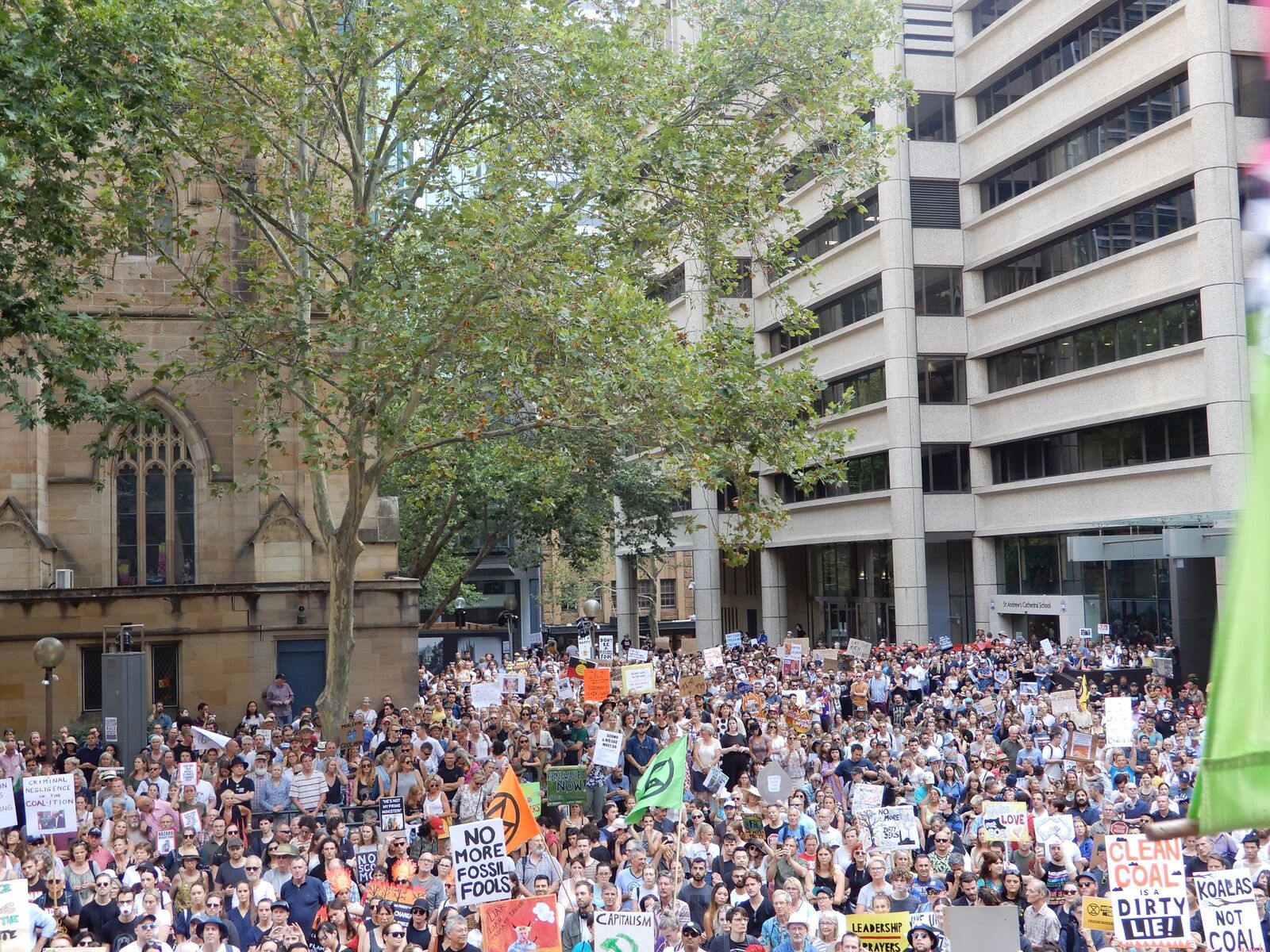
The largest ever strike
Around 250 million people took part in a general strike across India last week. Organised by the Centre of Indian Trade Unions, the unprecedented industrial action took aim at the anti-worker policies of the right-wing Hindu nationalist BJP government fronted by Narendra Modi.
The 8 January nationwide strike saw workers, employees and farmers stopping work across industries that included transport, engineering, textiles, defence and telecommunications. And despite government warnings against doing so, public sector employees put down their tools in droves.
Indian workers found themselves coming together in response to the Modi government’s ongoing attacks on industrial rights, its escalating privatisation of public industries and continuing policy rollouts that favour corporates at the expense of those on the ground.
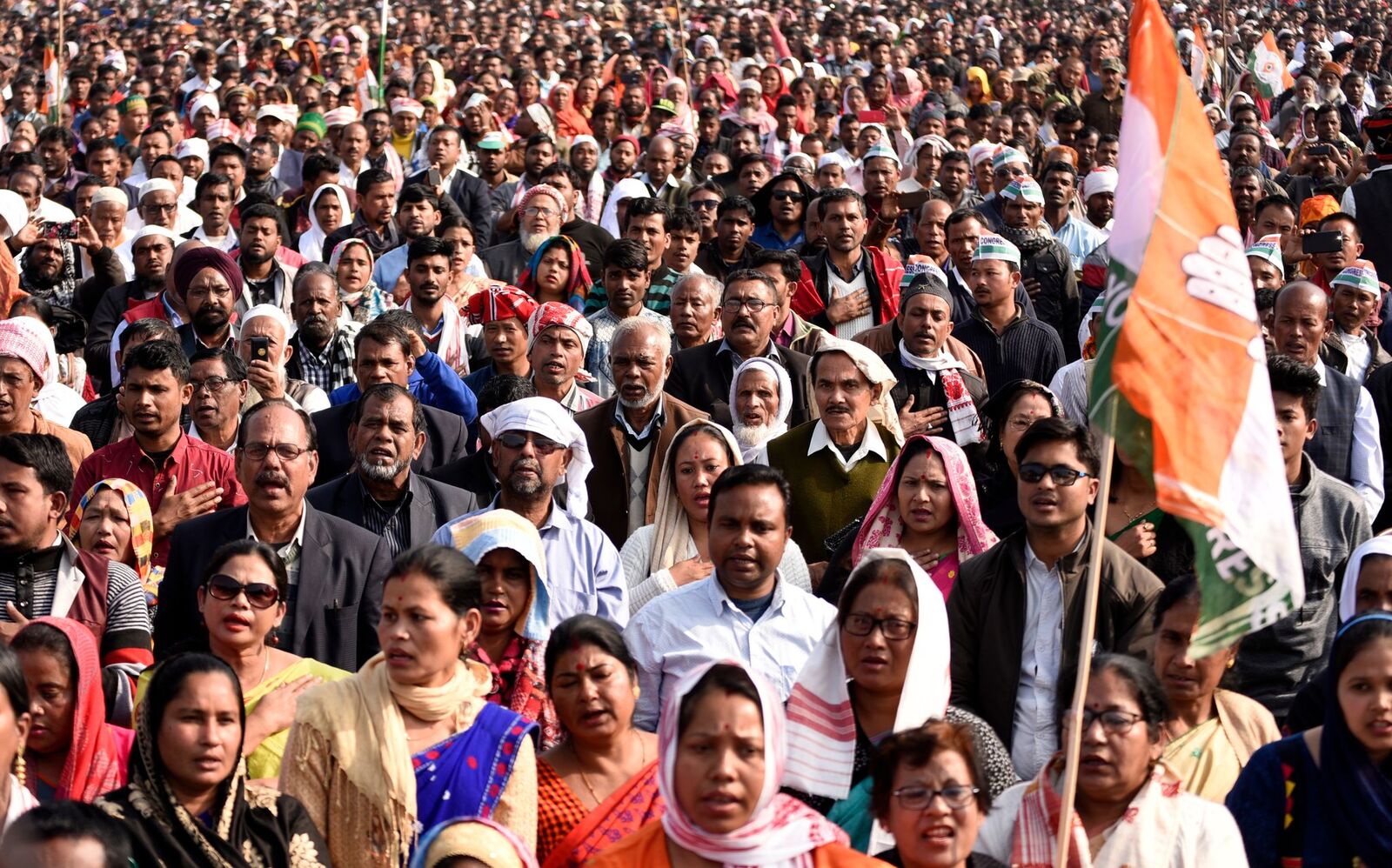
This mass mobilisation comes on the back of a month of demonstrations across the country in response to Modi’s Citizenship (Amendment) Act 2019, which came into effect last Friday. It’s a policy that ostensibly seeks to help immigrants from persecuted religious minorities become citizens.
However, the laws are a thinly veiled attack on Muslims, as the bill fails to extend the helping hand to those of the Islamic faith. And related policies in the northeast of the country have already led to 1.9 million Muslim residents being unable to prove that they’re legitimate Indian citizens.
Giletjaunization
Tuesday marks the 41st day of nationwide strikes in France against president Emmanuel Macron’s proposed pension reform package. In response to these industrial actions, PM Edouard Philippe announced over the weekend that plans to raise the pension age will be scrapped.
While the nation’s largest union, the CFDT, welcomed the compromise, the hard line CGT union labelled the move a “smokescreen” and vowed that it’s now more determined than ever to stop the reform of a retirement system that’s said to be one of the best in the world in its current form.
Transport workers began taking industrial action on 5 December. They were soon joined by teachers, hospital staff and pilots. While last week, unions started blockading oil refineries.
And these French protesters favour destructive measures, hurling projectiles and setting fire to and smashing up property.
The current actions have grown out of the Yellow Vest movement that sprung up in France back in October 2018. Initially, the grassroots demonstrators took to the streets over a proposed tax hike on fuel. But, even after the policy was scrapped, the movement continued as its demands had grown.
So, the Yellow Vests, or gilets jaunes, feature prominently in the current demonstrations. And again, while the wider movement has a focus on countering the pension reforms, its broader aim is bringing about changes to a system that’s increasingly leaving its members behind.
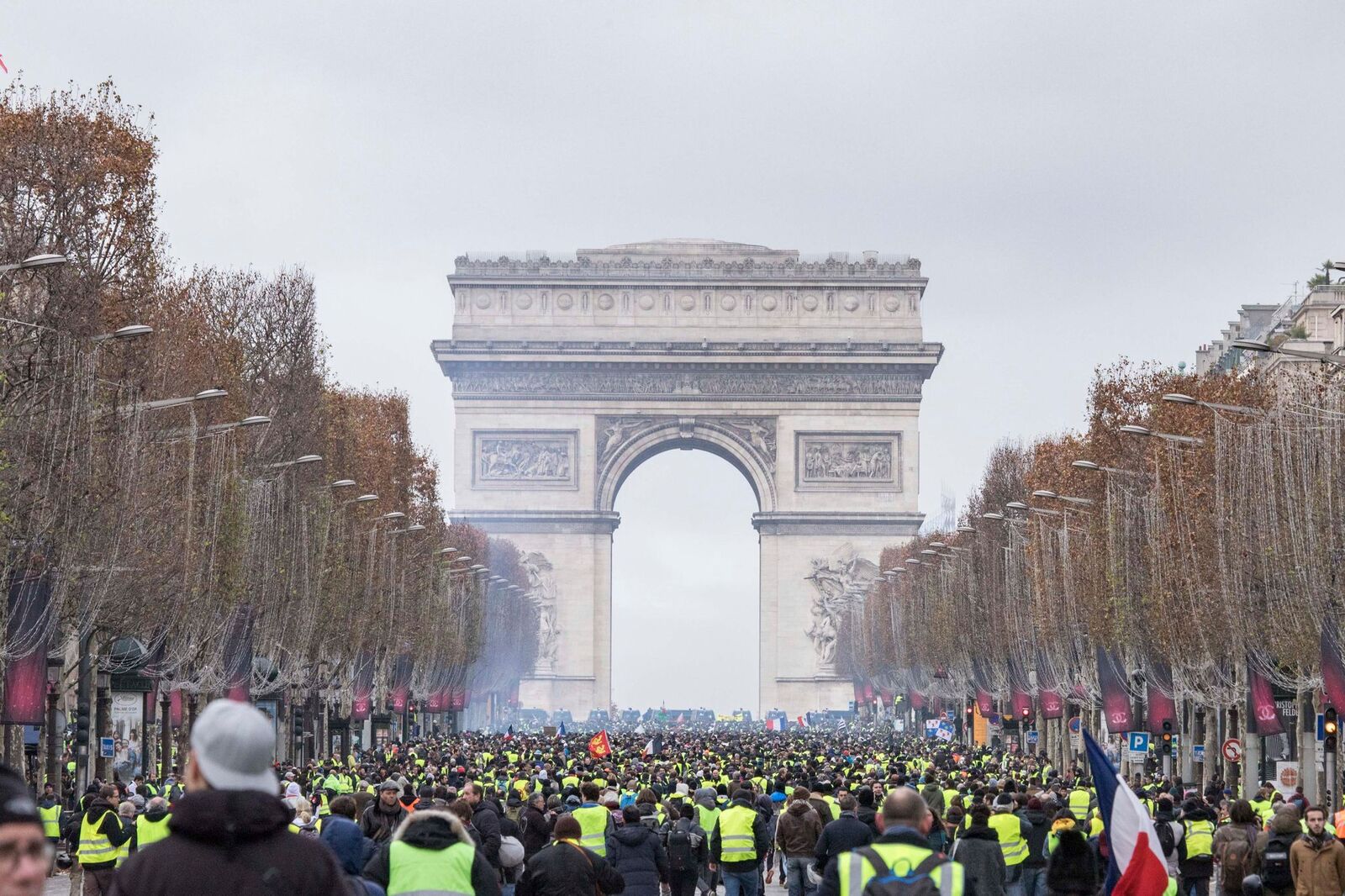
Calling for system change
While the global demonstrations are essentially disparate in their initial impetus, they all tend to be united once their pace picks up: frustration about a policy soon spills over into widespread discontent about government representing the interests of the 1 percent.
Another aspect funnelling into all this is changing climate. Too often the policies that the political class are promoting not only benefit a small group of the wealthiest people, but they do so at the expense of the planet’s ecosystems.
And it’s now a well-known adage that the behaviours that are wrecking the most devastation on the planet are the consumption habits of the rich, and it’s the poorer sectors of societies that are set to suffer the most severe effects from changing weather.
So, these rising mass movements are not simply signifying resentment toward policies that are constantly disadvantaging the many for the sake of the few, but these mobilisations are signalling a need for system change on a global scale.
Scorched earth realities
The 50,000 demonstrators that gathered at Sydney Town Hall for the Sack Scomo rally last Friday night, brought the CBD to a standstill, as they called for adequate funding for fire fighters, action on climate, an effective government response to the bushfires and an end to Morrison as PM.
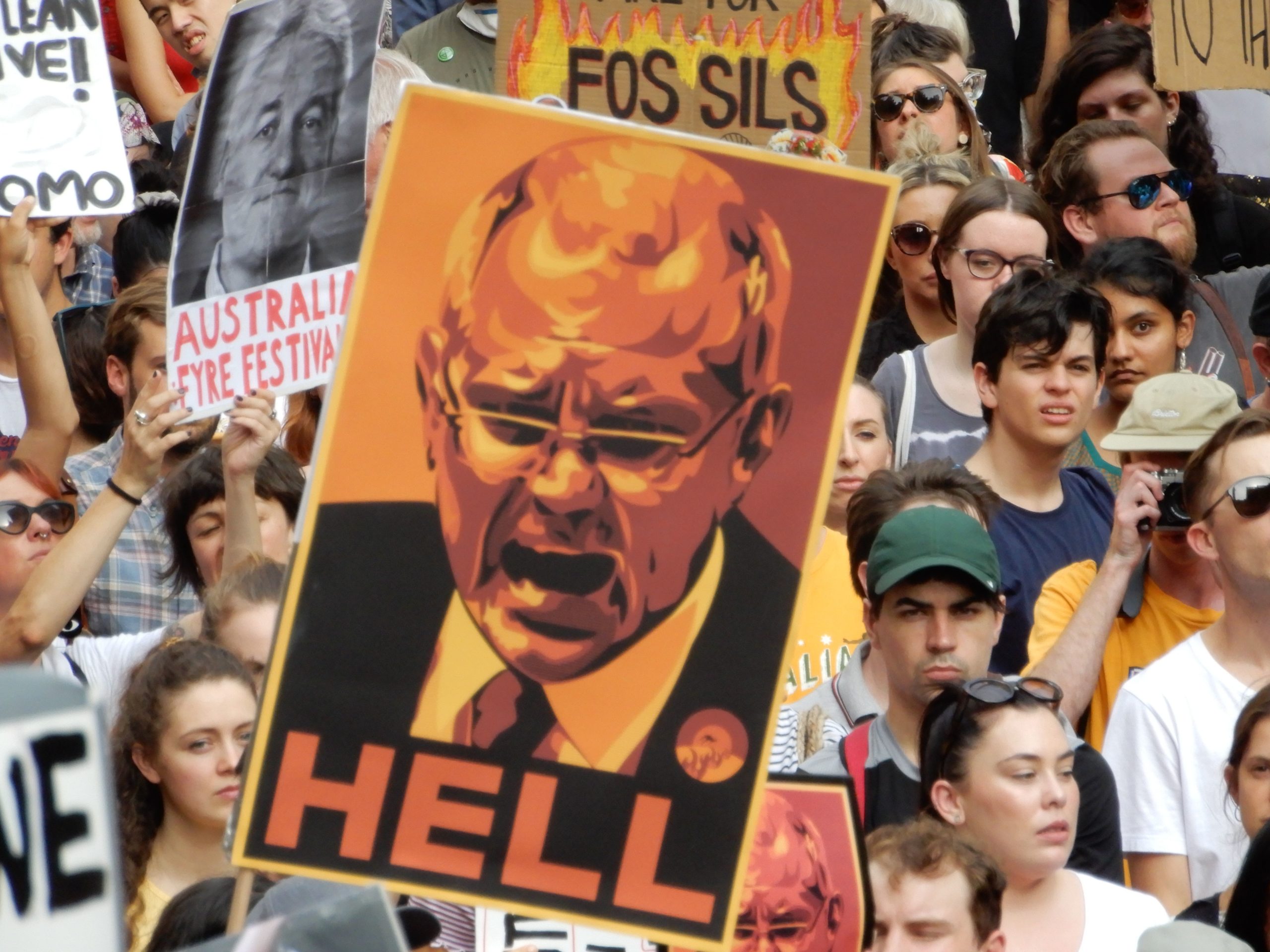
With fires having raged across the eastern seaboard since September, locals are now waking to the fact that there’s a new climate reality upon them and the understanding that those in power have the interests of the fossil fuel industry front and centre is becoming much harder to deny.
So, as the smoke drifts into comfortable suburban loungerooms and the flames lash at homes in regional areas, the good old Australian citizenry is getting increasingly discontent with a government that has more time for mining moguls than the quiet Australians who voted it in.





